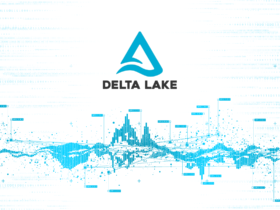Generative AI is completely reshaping the field of life sciences. It improves accessibility, encourages innovation for greater value, lowers disparities in research and treatment, and harnesses large-scale medical data analysis to create new data. Generative AI has become an influential trend that is changing traditional approaches in the life sciences.
The Role of AI in Life Sciences:

Gen AI is completely transforming the life sciences and bringing a new era of research and development. It is speeding up research, streamlining procedures, and providing a new, in-depth understanding of the intricate workings of biological systems. The way that scientists approach environmental studies, agriculture, and healthcare is changing as a result of the revolutionary synergies between genetics and AI. Given below are some applications of GenAI in revolutionizing research, drug discovery, diagnostics, and personalized medicine.
-
Accelerating Drug Discovery
Gen AI is changing the drug development process by using advanced algorithms to quickly and accurately identify potential drugs from large datasets. This reduces the amount of time and money needed. Gen AI improves the accuracy of focusing on particular diseases while also quickening the discovery phase. Gen AI creates opportunities to research new ways to cure different illnesses.
-
Biomarker Discovery:
Determining reliable biomarkers is important for understanding the mechanics of disease and creating customized treatments. GenAI analyses intricate biological data to find possible biomarkers that traditional methods might have missed. This creates new opportunities for illness monitoring and early diagnosis.
-
Revolutionizing Clinical Trials through AI
Generative AI is transforming medical research. It makes use of genetic data and intelligent computer programs to comprehend how our bodies function. This ensures that treatments are individualized and helps researchers discover the proper subjects for trials more quickly. Gen AI will speed up and improve medical research by helping us understand diseases better and treat them better.
-
Precision Medicine
The goal of personalized medicine is to adjust medical care to the unique needs of every patient. By evaluating genetic and molecular data, GenAI makes this easier and makes it possible to identify particular biomarkers and create individualized therapy plans. Treatment strategies are customized using machine learning and predictive analytics according to a patient’s medical history. This all-encompassing strategy helps people and healthcare professionals comprehend and effectively manage the health of their patients. Personalized strategy reduces side effects and increases therapeutic efficacy.
-
Analysis of Genomic Data:
The increasing amount of genomic data brings with it benefits as well as obstacles. Large genomic datasets can be analyzed by GenAI algorithms, which can then be used to find genetic variations, correlations, and possible disease markers. This makes it easier to comprehend the role that genetic variables play in the development of different diseases.
-
In Disease Diagnosis and Prognosis
GenAI improves disease detection speed and accuracy, which benefits the diagnostics industry. It helps detect diseases like cancer early through the analysis and pattern identification of medical imaging data, which is a critical benefit for prompt intervention and better patient outcomes. The detection of disorders and the creation of individualized therapies are facilitated by the analysis of enormous amounts of medical data by advanced algorithms.
-
Drug Design and Structural Biology:
Creating effective medications requires a thorough understanding of the intricate structure of biological substances. GenAI helps in designing novel molecules with desired properties, simulating chemical interactions, and predicting protein structures. This increases the rate of drug development success and speeds up the drug design process.
Future Prospects and Challenges
In the life sciences, general artificial intelligence (Gen AI) holds great potential for personalized treatment plans and drug discovery. It has a fast analysis speed for big data sets. But there are difficulties. We must ensure that it is applied morally, prevent prejudices in education, and adhere to rules. Trusting and comprehending its conclusions is also crucial. Making the most of Gen AI to advance research and healthcare requires striking a balance between innovation and ethical considerations.
Use Cases of Generative AI in Life Sciences
In the life sciences, generative AI has several uses, assisting in research and development, process optimization, and the creation of discoveries. Below are a few examples of use cases:
-
Augmenting data to train models
Artificial intelligence (AI) models perform better when using generative models to create synthetic data to supplement pre-existing datasets for tasks like medical image analysis, medication discovery, and precise diagnosis.
-
Data imputation for missing values
In life science datasets, generative AI can help fill in the gaps in medical data, giving researchers more accurate and comprehensive data to work with for modelling and downstream analysis.
-
Designing synthetic genes
Synthetic gene sequences can be designed for use in synthetic biology including the development of novel biosynthetic pathways and the optimization of gene expression for biomanufacturing.
-
Generation of virtual patients
Without access to huge real-world datasets, generative models can be used to generate artificial patient and healthcare data, which helps investigate uncommon diseases, train AI models, and resemble clinical trials.
-
Translation from image to image
Researchers can use generative AI models to convert biological images across different modalities. For example, they can be used to translate fluorescence microscopy data into electron microscope images, providing valuable insights.
-
Generating images from text
Generative models are useful for visualizing complex events or producing data for hypothesis testing since they may be used to create representations of biological structures or processes based on textual descriptions.
-
Biological process simulation
Researchers can better understand biological systems and forecast their behavior under various settings by using generative AI to generate lifelike simulations of biological processes, such as metabolic pathways or cellular signaling.
Conclusion:
Gen AI is transforming the life sciences by improving personalized medicine, finding biomarkers, and speeding up drug discovery. Its uses demonstrate its versatility, ranging from creating virtual patients to developing synthetic genes. However, some issues must be addressed, such as preventing biases and ethical concerns. The continued development of Gen AI has great potential for novel discoveries and individualized healthcare, underscoring the necessity of striking a balance between innovation and moral principles in its use.








